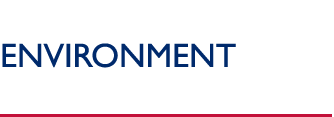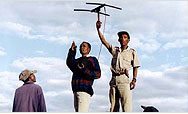U.S.-Japan Clean Water for the People Initiative: Partnering to Provide Safe Drinking Water and Basic Sanitation to the World’s Poor
In September 2002, the United States and Japan launched the Clean Water for People Initiative at the World Summit on Sustainable Development in Johannesburg, South Africa. The Initiative supports a joint statement made the year before by President George W. Bush and Prime Minister Junichiro Koizumi at Camp David re-affirming the U.S.-Japan Partnership for Security and Prosperity.
The Clean Water for People Initiative was created as a collaborative effort by the United States and Japan to provide safe water and sanitation to the world’s poor. This Initiative expands and accelerates international efforts to achieve the Millennium Development Goals, including halving “the proportion of the people without sustainable access to safe drinking water and basic sanitation” 2015.
At the World Summit on Sustainable Development in 2002, the United States formally announced the launch of the “Water for the Poor Signature Initiative” to support water-related projects developed through bilateral assistance programs. The U.S. committed $970 million in official development assistance (ODA) for water and sanitation projects. Over the last three years, 2003-2005, the United States has exceeded its commitment, providing $1.7 billion. Of this amount, $5.3 million was used for USAID credit guarantees that have leveraged an additional $171 million in financing from private-sector sources.
Between 2000 and 2004, Japan provided $4.6 billion in overseas development assistance for water and sanitation. In March 2006, Japan launched the “Water and Sanitation Broad Partnership Initiative (WASABI)” to enhance its contributions at the Fourth World Water Forum in Mexico City.
In 2003, the United States and Japan identified three countries in which they could collaborate: the Philippines, Indonesia, and Jamaica. The focus of the collaboration was on financing water and wastewater infrastructure, using the Japan Bank for International Cooperation’s (JBIC) ODA loans and the U.S. Agency for International Development’s (USAID) partial credit guarantees. The United States and Japan are working together to improve India’s access to water and sanitation services and announce that India is being added as the fourth pilot country in their collaboration.
Back to Top ^
|


